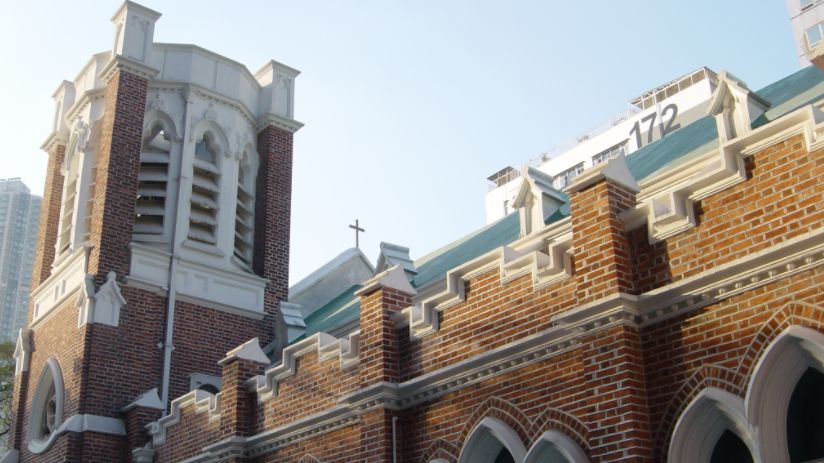Freedom of belief and the ability to exercise that freedom are fundamental human rights, They are protected in the Hong Kong Bill of Rights article 15, the Basic Law article 32 and the Sino- British Joint Declaration section XII. This also includes the freedom to maintain relationships with others, including the mainland.
Over the years Hong Kong religious organizations have developed strong and supportive relationships with both official and unofficial religious organizations in mainland China, based on the principles of non-interference, non-subordination and mutual respect set out in the Sino-British Joint Declaration.
However religious liberties enjoyed by Hong Kong and the mainland have taken very different paths. Severe restrictions and interference are experienced by Buddhists, Muslims, Catholics and Protestants in some regions of the mainland – in contrast to the religious freedoms now currently protected and enjoyed throughout Hong Kong.

It is estimated that there are around 200 million religious believers in mainland China, half of whom are Buddhists. Repression of the spiritual teachings of Buddhism was severe during the cultural revolution; land belonging to temples was confiscated.
Today many Buddhist sites are run under government control, and even the famous Shaolin Temple flies the national flag. The authority of religious leaders has virtually been incorporated into the state.

The repression of Xinjiang’s non-Han Chinese Muslims has been making headline news with an estimated 1 million people detained in ‘re-education camps’, with the intention of replacing ‘extreme religious dogma’ with Chinese culture and identity.
Anyone who peacefully practices Islam is punished, and learning Mandarin is mandatory. Even outside the camps severe restrictions on Islamic culture and practice make religious observance almost impossible.

Repression of the underground Early Rain Covenant Church has also been reported publicly in Hong Kong, with Pastor Wang Yi and his wife being detained as well as around 100 of their congregation. His outspoken but non-violent defiance of interference and control by the state has allegedly resulted in criminal charges for inciting subversion.
Elsewhere in Zhejiang province crosses have been removed and buildings demolished in both Protestant and Catholic churches. Again, the issue appears to be one of submission to state control.
In the Christian context Paul uses the imagery of the human body to make the point that ‘If one part (of the body) suffers every part suffers with it’ (1 Cor 12:26). So within each particular religious expression our faith takes, how should we respond to the suffering, restrictions and interference experienced by some of our fellow believers in the mainland? How should we in Hong Kong support them?
Some in Hong Kong have been able to provide physical and spiritual support with visits and communication. But increasingly it has become difficult if not impossible to obtain official visas and permits.
Some have argued that a quiet word spoken in the right ear can achieve far more than outspoken public support and criticism; it would be surprising indeed if representations behind closed doors were not being offered by those who have access.
Others in Hong Kong may choose to remain silent in order to avoid further recrimination towards their fellow believers on the mainland and themselves in Hong Kong.
In the current climate of intimidation and interference in religious affairs on the mainland it is gratifying to see that the Chinese church in Hong Kong is not only responding in prayer but also exercising its religious freedom to speak up for those who are suffering repression, despite the risks and the inevitable labeling that will follow.
It is not uncommon for pastors in Hong Kong to receive ‘friendly’ warnings not to get involved in religious activities on the mainland.
So when Christian denominations here issue statements supporting their fellow believers in China, condemning the intimidation and suppression, and some groups even protest publicly at the Liaison Office, we can be assured that this particular freedom is being strengthened against any tendency for self-censorship.

When reality eventually strikes and religious freedom is restricted in Hong Kong will our voices still be heard then? We will surely expect others outside of Hong Kong to speak up for us. So it is important that we do today what we expect others to do for us tomorrow.
But it is also important to mobilize those links with others now, so that our religious associates and counterparts in other countries are already aware of the situations faced by religious believers in China and can add their weight.
This will not only encourage us in our protest here but will also provide greater international impact on the situation in mainland China.
Under ‘one country, two systems’ our freedom to speak out for others is protected by our mini-constitution and it is the duty of government to make sure that those freedoms are strong and are exercised.
But under ‘one country, two systems’ we not only have the opportunity to speak out for others. It also becomes our personal duty. We might be inclined to think that we can just leave it to others, that religious freedom is a political issue and not a religious one.
However, in the case of Christianity its primary call is to freedom; a call so important that it took a supreme sacrifice to accomplish it. There can be no better time for us to make that call on behalf of others.
‘Freedom’ in its various forms is a hallmark of the dignity that all human rights are designed to protect. To be able to exercise that right for others and speak up on their behalf is a powerful expression of our common humanity and reaches across religious, political and social boundaries.
To speak up for others in this way does not imply agreement with their particular beliefs or practices but speaks simply to their freedom of religion, belief, political conviction or way of life.
